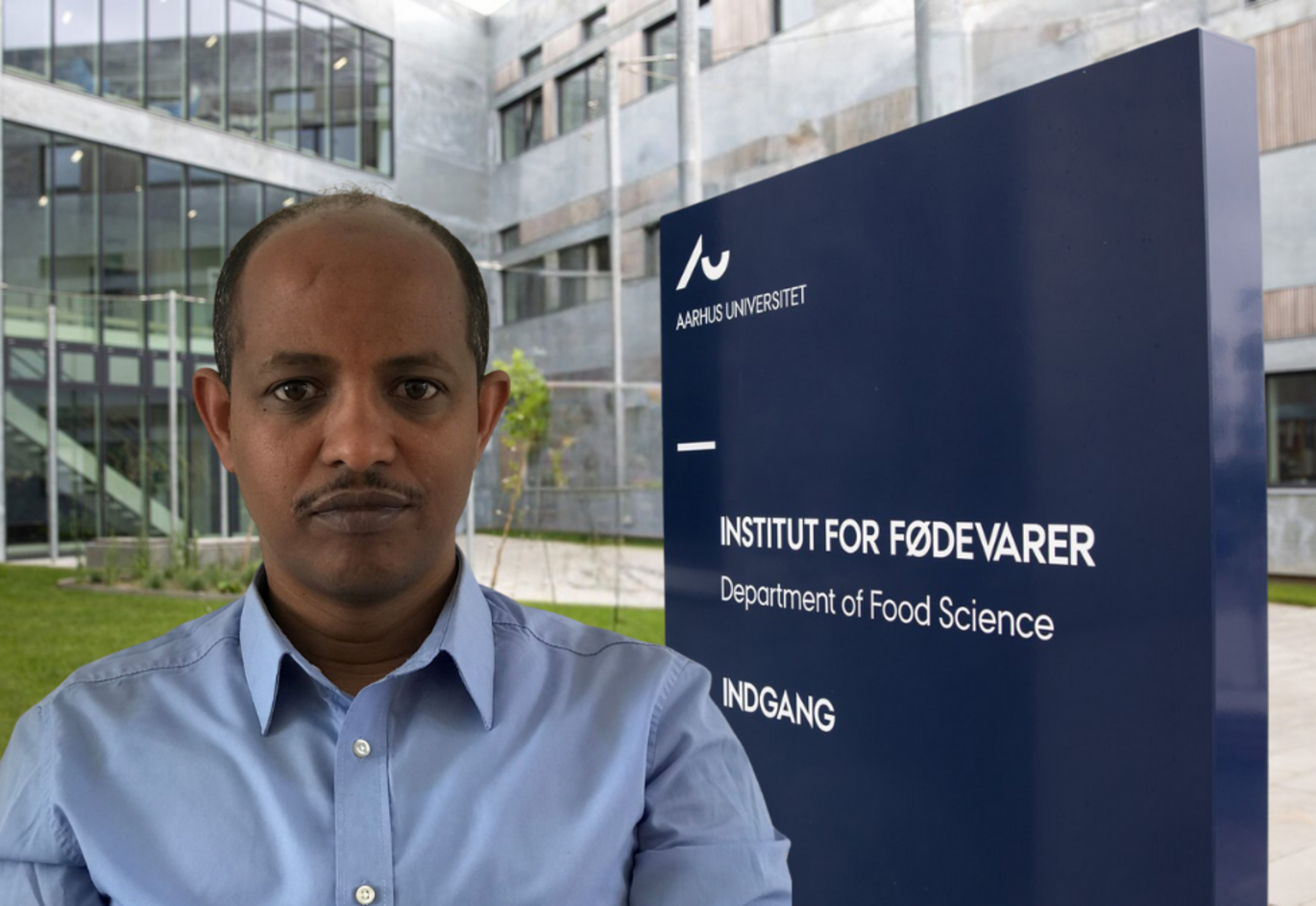New Assistant Professor leads the charge in sustainable vegetable production
Mesfin Tsegaye Gebremikael has been with the Department of Food Science since June 2021. In March of 2023 he joined the Department’s Tenure Track Programme as an assistant professor. His research centers around sustainable soil management practices in fruit, vegetables and legume production.

Mesfin Tsegaye Gebremikael’s academic journey began with undergraduate studies in crop production in Ethiopia. After working as a teaching and research assistant in his home country, he decided to move to Belgium in 2010 to pursue a master's in soil sciences at Ghent University, leading him to a Ph.D. at the same place.
During his Ph.D., he delved into the intricate world of soil organisms, particularly free-living soil nematodes and their impact on nutrient cycling.
This research has not only highlighted the often-overlooked positive impact of these organisms but has also laid the foundation for his interest for and research in exploring the roles of soil organisms in sustainable soil management and crop production.
New opportunities
After working as a Postdoctoral researcher at Ghent University for five years, Mesfin Tsegaye Gebremikael started looking for other opportunities to do more applied research on sustainable crop production.
“When I did research on crop or vegetable production, it was often in collaboration with other institutes that had the facilities to do experiments in the field,” he explains.
He had collaborated with researchers from the Department of Food Science at Aarhus University earlier, and when a position opened up, he decided to apply because of his interest in sustainable vegetable production and the research infrastructure available at the Department to conduct fundamental and applied research.
“It almost feels like the sky is the limit regarding research facilities. There is a field research station at AU Auning, if you want to do field experiments, and state-of-the-art greenhouse, controlled environment production facilities and lab facilities at Agro Food Park, if you want to conduct experiments in a more controlled environment,” he says.
He came to Aarhus in June 2021 as a Postdoctoral researcher working on projects involving plant biostimulants, plant-based fertilisers, composting and strip cropping. He almost instantly felt at home at the Department.
“When I came here, I instantly really liked it. Both the working environment and the opportunities to do research and teaching. The facilities and the instruments here are quite amazing, and are accessible to every researcher in the department – they don’t belong to a specific group, which fosters a lot of interdisciplinary collaboration,” he says.
Since March 2023 he has been a part of the Department’s Tenure Track-programme as an assistant professor.
Supporting the green transition
Mesfin Tsegaye Gebremikael’s research is driven by his passion for sustainable agricultural practices and the desire to help further the green transition. A goal that he feels aligns well with the strategy at the Department of Food Science and in Denmark in general.
“There is a growing focus on how to sustainably intensify vegetable production, and Denmark is one of the leading countries in agricultural innovations fostering sustainability,” he says.
His work focuses on soil organic matter and soil organisms as key players in restoring soil fertility and as a way forward to reduce the intensive chemical agricultural inputs in vegetable production. His focus on waste valorisation — the conversion of waste into bio-based inputs for agriculture — exemplifies his commitment to reducing environmental impact while fostering agricultural innovation.
By identifying problems and co-designing solutions with various stakeholders, he ensures that his research directly addresses real-world challenges faced in the entire vegetable production and consumption value chain. As a part of his role as a Tenure Track Assistant Professor, he is also involved in teaching and fundraising.
Goals for the future: healthy soils for healthy food production
“About 95% of the nutrients in our food comes directly or indirectly from the soil. We cannot achieve sustainable food production without looking at how to sustainably manage the soil, where we grow our food in,” he says and elaborates:
“Healthy soils are the basis for the production of healthy plant food. Vegetables are primarily produced under intensive production system with high chemical inputs and repeated tillage operations substantially degrading soil health. My goal is to develop and adopt innovative soil management tools and practices for the intensification of vegetables and fruit production while keeping the soil healthy”.
Mesfin Tsegaye Gebremikael acknowledges challenges such as convincing funding agencies of the importance of research on sustainable vegetable and fruit production due to its small share of the total agricultural area in Denmark, but he is adamant that it is an important research area and will only become more relevant in the future. Fruit and vegetable production in Denmark is critically important and the industry should have increased focus.
His innovative approach, commitment to teaching, and collaborative spirit position him as a valuable asset in the Department of Food Science's mission for a greener, more sustainable tomorrow.
